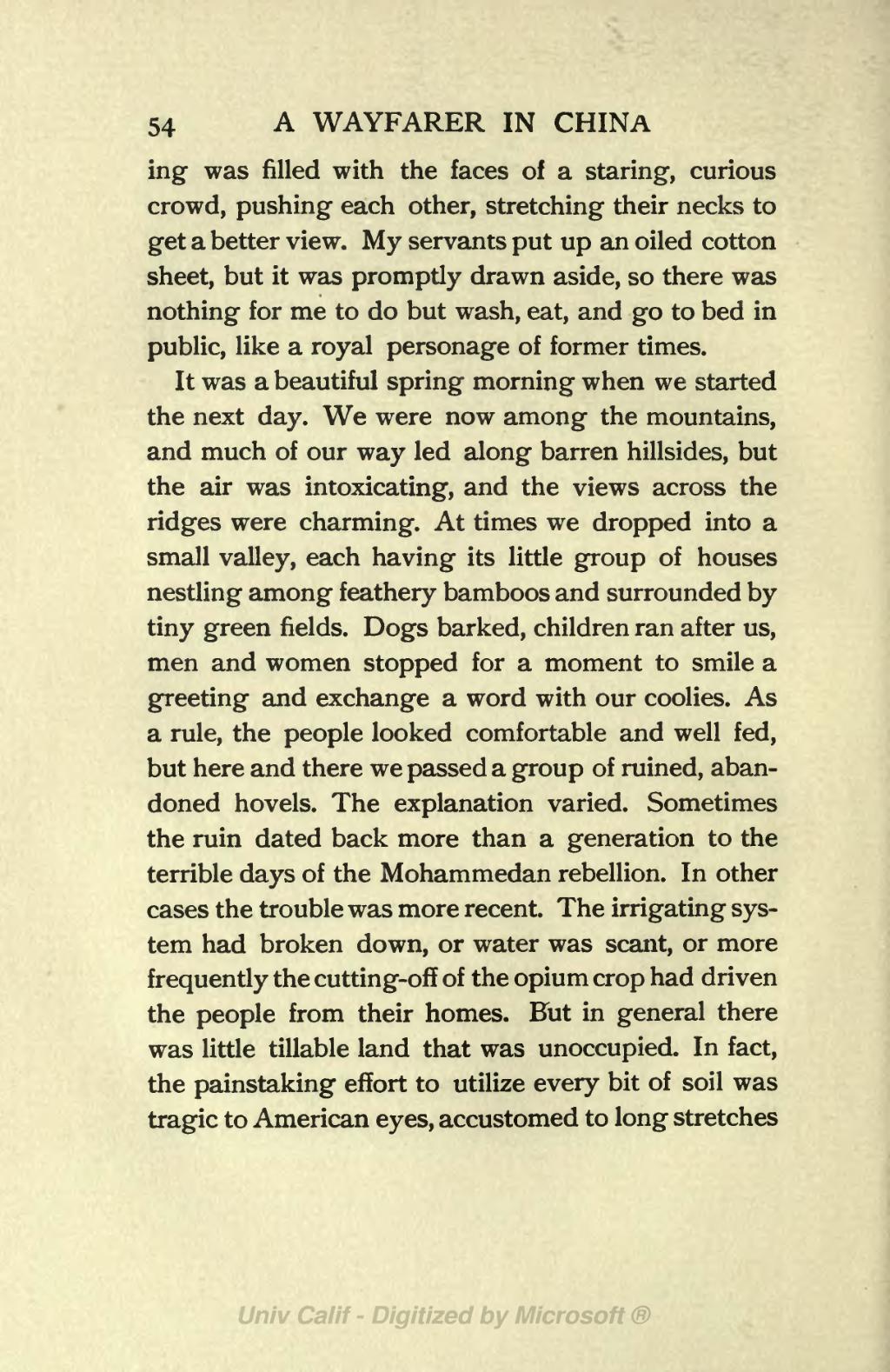ing was filled with the faces of a staring, curious crowd, pushing each other, stretching their necks to get a better view. My servants put up an oiled cotton sheet, but it was promptly drawn aside, so there was nothing for me to do but wash, eat, and go to bed in public, like a royal personage of former times.
It was a beautiful spring morning when we started the next day. We were now among the mountains, and much of our way led along barren hillsides, but the air was intoxicating, and the views across the ridges were charming. At times we dropped into a small valley, each having its little group of houses nestling among feathery bamboos and surrounded by tiny green fields. Dogs barked, children ran after us, men and women stopped for a moment to smile a greeting and exchange a word with our coolies. As a rule, the people looked comfortable and well fed, but here and there we passed a group of ruined, abandoned hovels. The explanation varied. Sometimes the ruin dated back more than a generation to the terrible days of the Mohammedan rebellion. In other cases the trouble was more recent. The irrigating system had broken down, or water was scant, or more frequently the cutting-off of the opium crop had driven the people from their homes. But in general there was little tillable land that was unoccupied. In fact, the painstaking effort to utilize every bit of soil was tragic to American eyes, accustomed to long stretches
